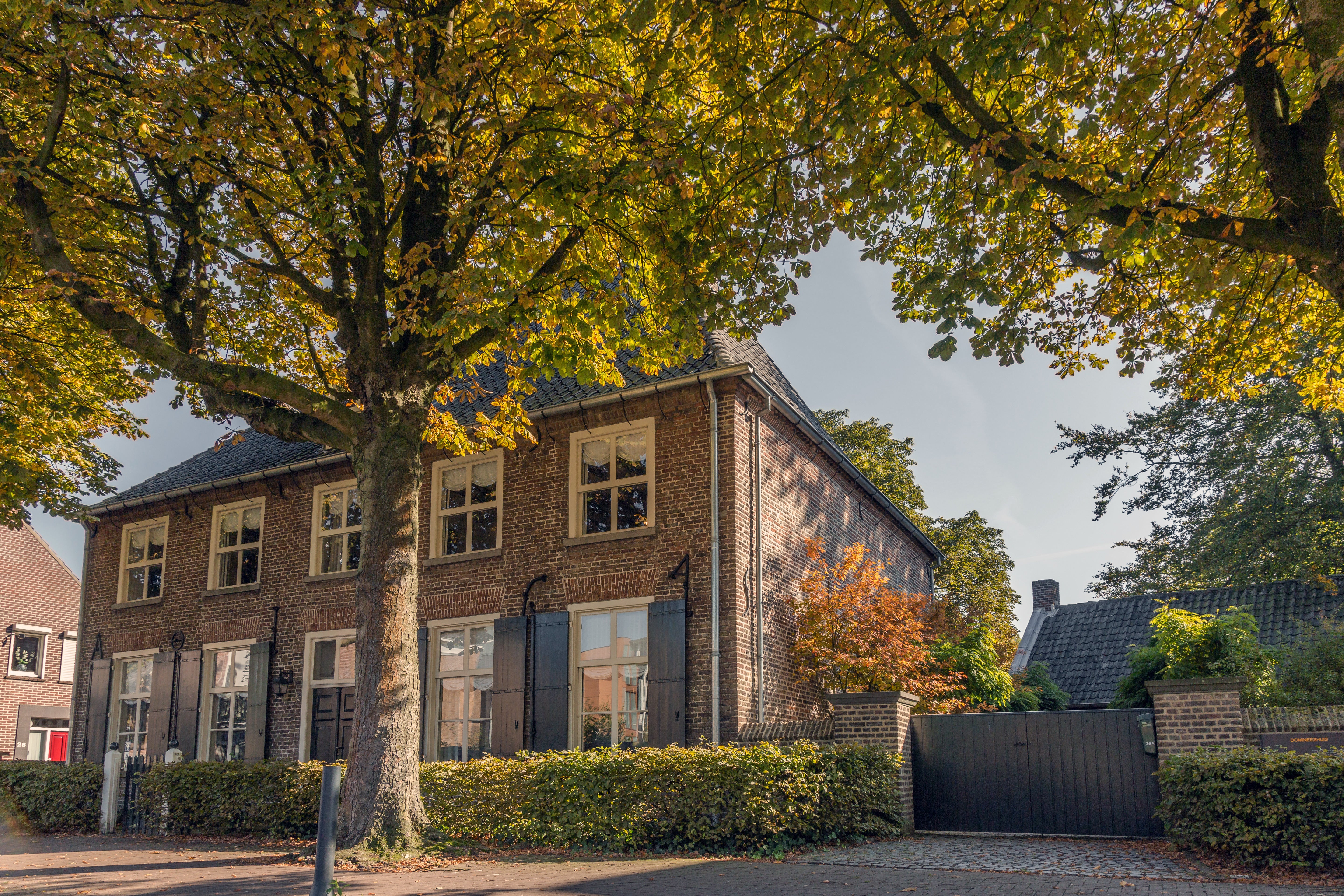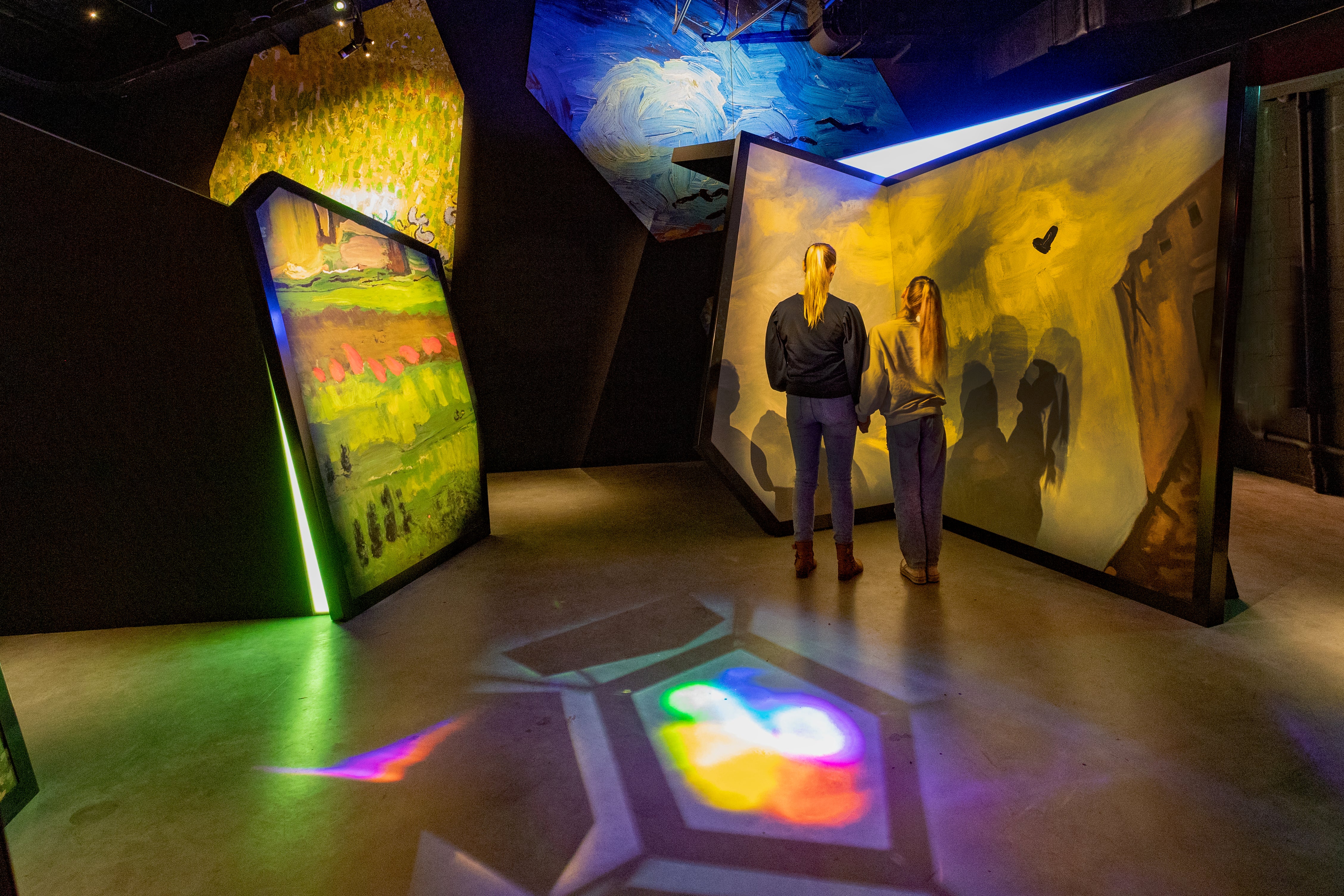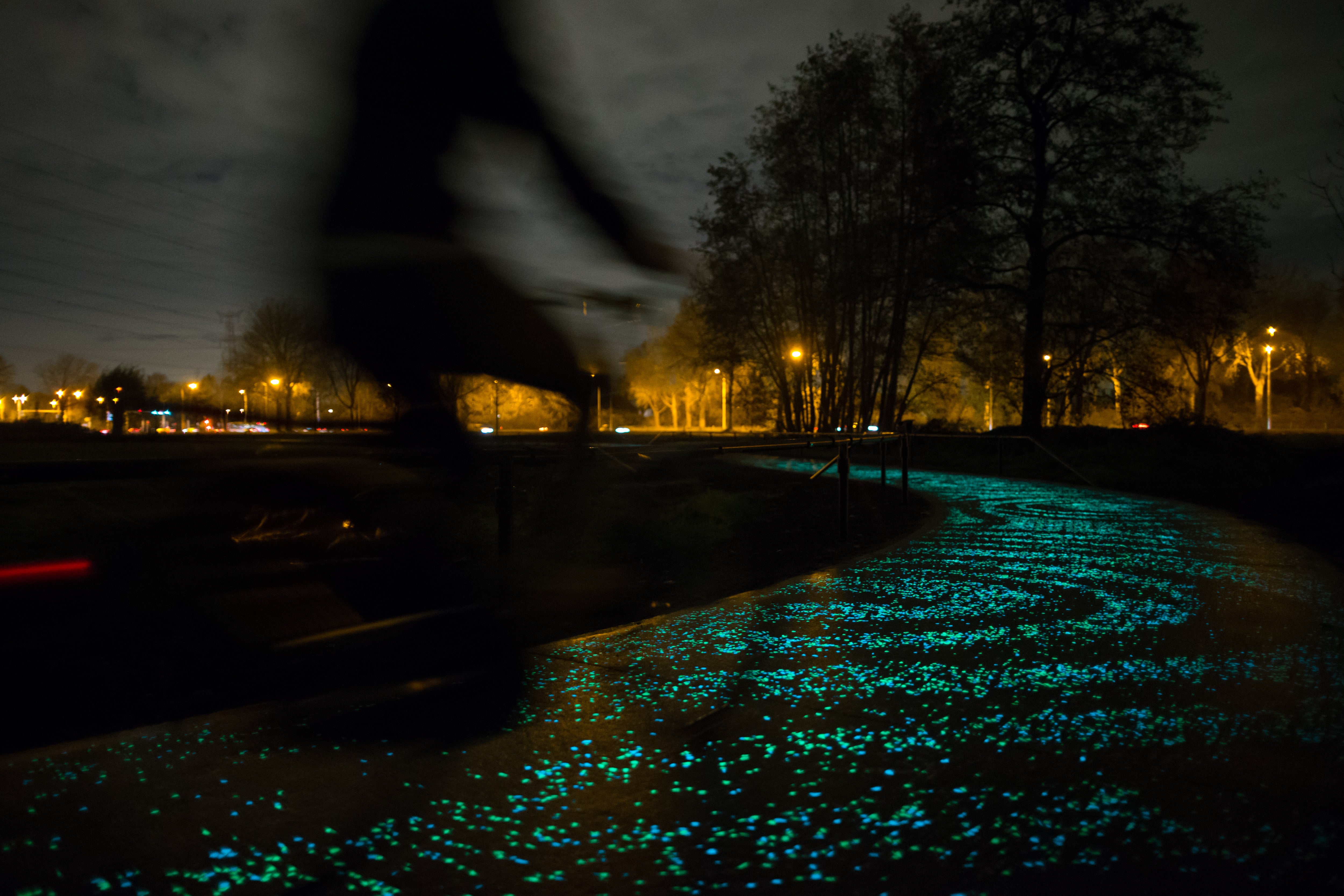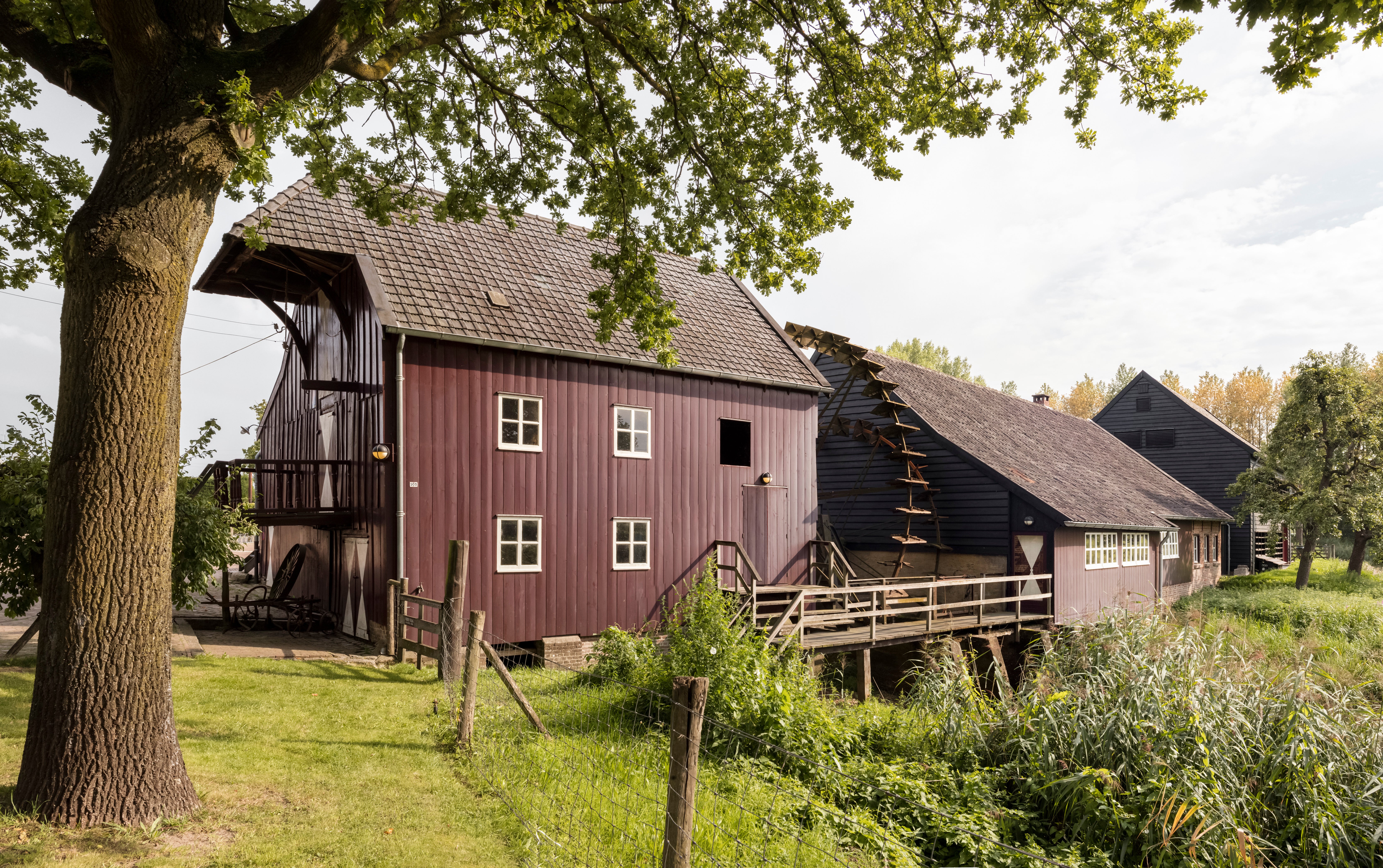Follow in Van Gogh’s footsteps on an off-the-beaten-track Netherlands tour
As the Dutch queen reopens the Netherlands’ Van Gogh Village museum, Lucy Shrimpton gets on the lesser-known art trail and discovers there was plenty of drama before the ear and the pistol

If cemeteries are travel’s greatest source of stories, real or imagined, I’m saying that nowhere is this truer than in the shade of a modest Dutch Reformed church in the south of the Netherlands. Because among the headstones, lying as flat as the country itself, is one that marks the final resting place of Vincent van Gogh.
Or so it might seem to anyone but the eagle-eyed historian, who’d know that painter Vincent wasn’t actually born in 1852, or the linguist, who’d know that kinder means child. Both are clues that this isn’t in fact the burial site of the Vincent, but of a namesake: his stillborn brother, born one year previously, to the very day.
I’m in Zundert, an unassuming village in the province of Brabant, where the iconic Vincent was born 170 years ago. Lesser known than Arles in Provence, where he painted Sunflowers and famously did away with his ear, and perhaps than Auvers-sur-Oise, near Paris, where he painted Wheatfield with Crows and tragically took his own life, his hometown is the bedrock backstory crucial to our understanding of the young and rebellious yet passionate and optimistic Van Gogh, and of his perpetual mission to be closer to love, purpose and nature.

Just as I’m contemplating the conflicting emotions Vincent’s mother must have felt on the day her second son was born, I’m enlightened on another brother, Theo, as I stand beneath his wall-spanning photographic portrait on the site of the artist’s childhood home next door to the churchyard.
Among carefully curated quotes, tokens from nature (the boy Vincent rarely returned home post-ramble without a spider, nest or plant), and contemporary artistic interpretations, our guide casually mentions something I’ve never heard before: a suggestion that, in later life, art dealer Theo was kind enough to let Vincent think his paintings were selling successfully. It’s a twist in the tale, given the commonly held belief that only one was ever sold in his lifetime.
Read more on Netherlands travel:
As if this sibling spin doesn’t tell me everything I need to know about Theo – poster boy for “Be Kind” – a sculpture outside confirms it. Two entwined bronze figures huddle in a space where their conjoined heart would be. It’s unclear to me which is Theo and which Vincent, but perhaps that’s the point.

New flames
Another Vincent chapter opens nine miles north in the town of Etten-Leur, where the Van Gogh family resettled. Its centre, the church in which his minister father preached, is now a visitor centre. Following many a career misfire, it was here that, at the age of 28, Vincent dubbed himself an artist for the first time, the evidence found in a council register document.
Two entwined bronze figures huddle in a space where their conjoined heart would be. It’s unclear to me which is Theo and which Vincent, but perhaps that’s the point
While themed stained-glass windows above me narrate the major events of his short lifetime, it’s the details in the panels below that expose the illuminating substories: a Christmas Day row after which Vincent’s father showed him the door; his relentless romantic pursuit of a cousin (Vincent famously took her “No, nay, never” rejection as good grounds to be hopeful, and promptly thrust his hand into a flame to prove his passion). His obsession was matched only by his practice of drawing farm labourers during this period; his determination to commit their movement to paper may go some way to explaining why, in later masterpieces, human forms look like they could spring to life at any second.

Define a shrine
In Nuenen, to the east, where Van Gogh produced a whopping quarter of his oeuvre, I find that it’s possible to honour his talent in a low-key but powerful way. State-of-the-art yet styled on a rustic farmhouse, I find the revamped museum is on one hand traditionally curated, on the other interactively experiential, with a light and colour lab, animated peer portraits that make no bones about Vincent’s nature, and humble objects from social history placing me in the heart of the artist’s home life.
It’s also what it doesn’t contain that sheds light on Nuenen’s vision: “We don’t want Van Gogh originals here,” guide Hans Keijzer tells me, citing security, the conditions paintings would need to be kept in, and footfall implications. “It would be too much for the village.” Instead, it seems there’s an attempt to usher visitors out into the open air – which is fitting, given that the great outdoors was Van Gogh’s biggest inspiration.
Within a few steps of the museum, there’s a sculpture of his masterpiece The Potato Eaters, where I can study the models’ weathered faces he so scrutinised; a stirring story seeping through the bricks and mortar of his lover Margot’s home (she famously tried to poison herself following her spinster sisters’ firm disapproval of the affair); and a glimpse of his former studio, which anywhere else might be tastelessly overexposed. Everywhere, the disembodied voice from his letters floats in the air.

Looking into the face of Van Gogh’s statue here, I can’t help but feel I’ve been on a journey of “what ifs”. What if the first Vincent had lived? What if the second Vincent had succeeded at an earlier career? If “the little painter fellow” – as he was known – had married Margot, would he ever have painted in France? If just one of these things had happened, we might have been deprived of an icon, the Vincent who never knew he was leaving an imprint on art history like no other.
Other Van Gogh experiences to try
For inspiration, watch this short film that emotively captures the voice of Vincent in his homeland.
See Van Gogh’s original paintings at Het Noordbrabants Museum in nearby Hertogenbosch; 12 are displayed, as well as countless studies for The Potato Eaters.
Eat at Opwetten Watermill. Vincent the serious walker regularly passed by, and the structure also appears in his works.
Cycle the Van Gogh Roosegaarde cycle path (which, on a full moon, twinkles like a starry night). The complete Van Gogh cycle network consists of 10 different routes.
Travel essentials
Getting there
Get here via the same ferry route that Vincent took when he went to work in Ramsgate. Stena Line operates two services per day from Harwich to Hoek-van-Holland, and Nuenen is an onward journey of 90 miles.
Staying there
Inntel Hotels Art Eindhoven is based in the former Philips factory, where the first lightbulbs were made, in the city of Eindhoven, not far from Nuenen.
More information
Find out more at vangoghbrabant.com
Read more of our best Netherlands hotel reviews
Join our commenting forum
Join thought-provoking conversations, follow other Independent readers and see their replies
Comments
Bookmark popover
Removed from bookmarks